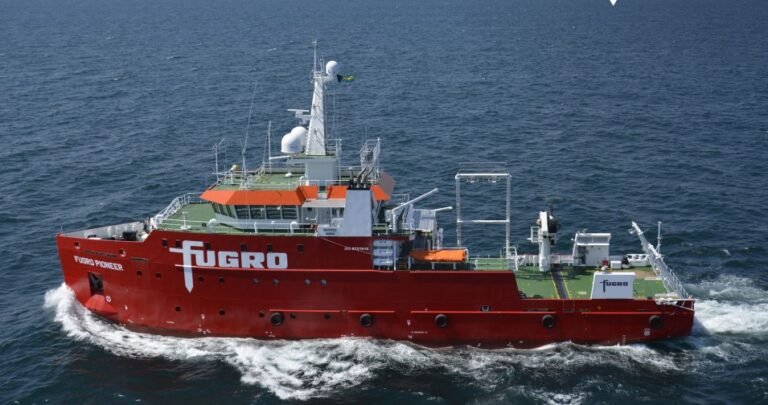Fugro Joins Methanol Institute to Transition Fleet to Low-Carbon Fuels
Dutch geo-data solutions provider Fugro has recently become a member of the Methanol Institute (MI), a leading global trade association for the methanol industry. This move aligns with Fugro’s commitment to decarbonization by transitioning its fleet of geotechnical and geophysical vessels to low-carbon fuels, with a particular focus on methanol.
As part of its broader goal to achieve net-zero operations by 2035, Fugro has taken steps to convert its 2014-built geophysical vessel, Fugro Pioneer, to operate on methanol. This conversion involved replacing two of the vessel’s original engines with methanol engines, allowing services to continue in regions where green methanol may not yet be readily available.
The conversion of Fugro Pioneer is part of the Methanol as Energy Step Towards Emission-free Dutch Shipping (MENENS) consortium, which received funding from the Netherlands Enterprise Agency (RVO) in late 2021. The consortium aims to accelerate the transition to emissions-free shipping by developing adaptive system solutions based on methanol.
In March 2025, the consortium successfully completed the primary phase of converting their first vessel to run on methanol, a move expected to reduce carbon emissions by over 90% compared to traditional marine fuels.
In a recent white paper titled “Economic Value of Methanol for Shipping under FuelEU Maritime and EU ETS”, the Methanol Institute highlights the potential economic benefits of utilizing methanol in the maritime industry. The paper suggests that regulations such as the EU’s FuelEU Maritime and the EU Emissions Trading System (EU ETS) could create a level playing field for bio- and e-methanol, making eco-friendly fuels more economically competitive against fossil marine fuels.
The Methanol Institute’s research indicates that imposing significant penalties for the use of fossil fuels under these regulatory frameworks could effectively encourage the adoption of sustainable fuels, particularly methanol. This could pave the way for the maritime industry to explore additional alternative fuels and make significant strides towards achieving its overarching net-zero emissions goal by 2050.
Having been granted consultative status by the International Maritime Organization (IMO) in August 2024, the Methanol Institute is now able to contribute its expertise to the development of shipping regulations, further promoting the use of environmentally friendly fuels in the maritime sector.

